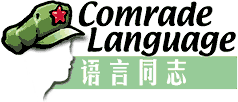



    |
| Beijing Scene, Volume 5, Issue 8, May 7 - 13 |
|
ARCHIVE EDITION
|
 |
|
||
| TRADITIONAL HOLIDAYS | |||
|
Despite the decline in the observance of traditional Chinese cultural holidays, the Comrade still wants his foreign friends to be able to answer redundant and boring questions about them. Chinese kids only get off from school for nine officially recognized ���ҽ��� guojia jieri (National holidays) every year, but there are many more ��� minjian (folk) holidays that are taken with varying degrees of seriousness throughout China. China is an agricultural society (hence all the peasants), so it should be no surprise that most traditional Chinese folk holidays revolve around the ũ�� nongli (Lunar Calendar). Many of these holidays had been observed annually for thousands of years until they mysteriously and suddenly ceased to be observed about 30 years ago. Hey, what a coincidence! That was right around the time of the �Ļ������ Wenhua Da Geming (Great Proletarian Cultural Revolution). Despite the decline in the observance of traditional Chinese cultural holidays, the Comrade still wants his foreign friends to be able to answer redundant and boring questions about them. After all, 99 percent of the conversations you have with Chinese people are like a game of Trivial Pursuit, and what could be more trivial than the topic of traditional Chinese holidays? ���� Chunjie (Spring Festival) During Spring Festival, Chinese families get together to eat ��ҹ�� nianyefan (the mandatory New Year's Eve meal). The meal consists of ���� jiaozi (dumplings) in the North and �� niangao (an indescribable sticky substance) in the South. Each family must eat a ȫ�� quanyu (whole fish) because the word �� yu (fish) sounds like �� yu (surplus), as in the expression �������� niannian youyu (here is a surplus year after year), which was the most-favored slogan of the ��Ծ�� Da Yue Jin (Great Leap Forward). Another tradition is for ���� zhangbei (older generations) to give gifts of money to ���� wanbei (younger generations). This money is called ѹ��Ǯ yasuiqian (lit. "money to hold back the years"). The word �� su" (year of age) sounds like �� sui (evil spirit or ghost), implying that the money is also supposed to protect children from evil. Actually the money is a cleverly disguised form of investment, since the child is expected to fulfill his or her filial obligations and return the money to the parents when they're old and feeble. Ԫ���� Yuan Xiao Jie aka As for the ��Դ laiyuan (origins) of the holiday, there are many ludicrous stories. The most plausible one contends that a ���(r) g�ngn� (servant in the �ʹ� Huang gong, or Imperial Palace) cooked up a batch of ��Բ�� tangyuan'r that were so �ɿ���ζ kekou meiwei (delicious) that the Emperor decided to commemorate her culinary skills by declaring a holiday. People (such as Emperors) had nothing better to do than make or buy paper lanterns and wander the streets with them. Hence the holiday is also called �ƽ� Deng Jie (Lantern Festival). � ������ Qing Ming Jie or ��ˮ�� Po Shui Jie (Water-Splashing Festival) ����� Duan Wu Jie ��Ԫ�� Zhong Yuan Jie ����� Zhong Qiu Jie (also called ��Բ�� Tuan Yuan Jie) Now you're ready to get out there and astound proletariats old and
young with your extensive knowledge of insignificant facts about obscure
Chinese holidays. Happy ����� Duan Wu Jie! |
Previous Stories... To Own Real Estate is Glorious
|
|
home | cover
story | in short | ask
ayi | comrade | doctor
doctor |